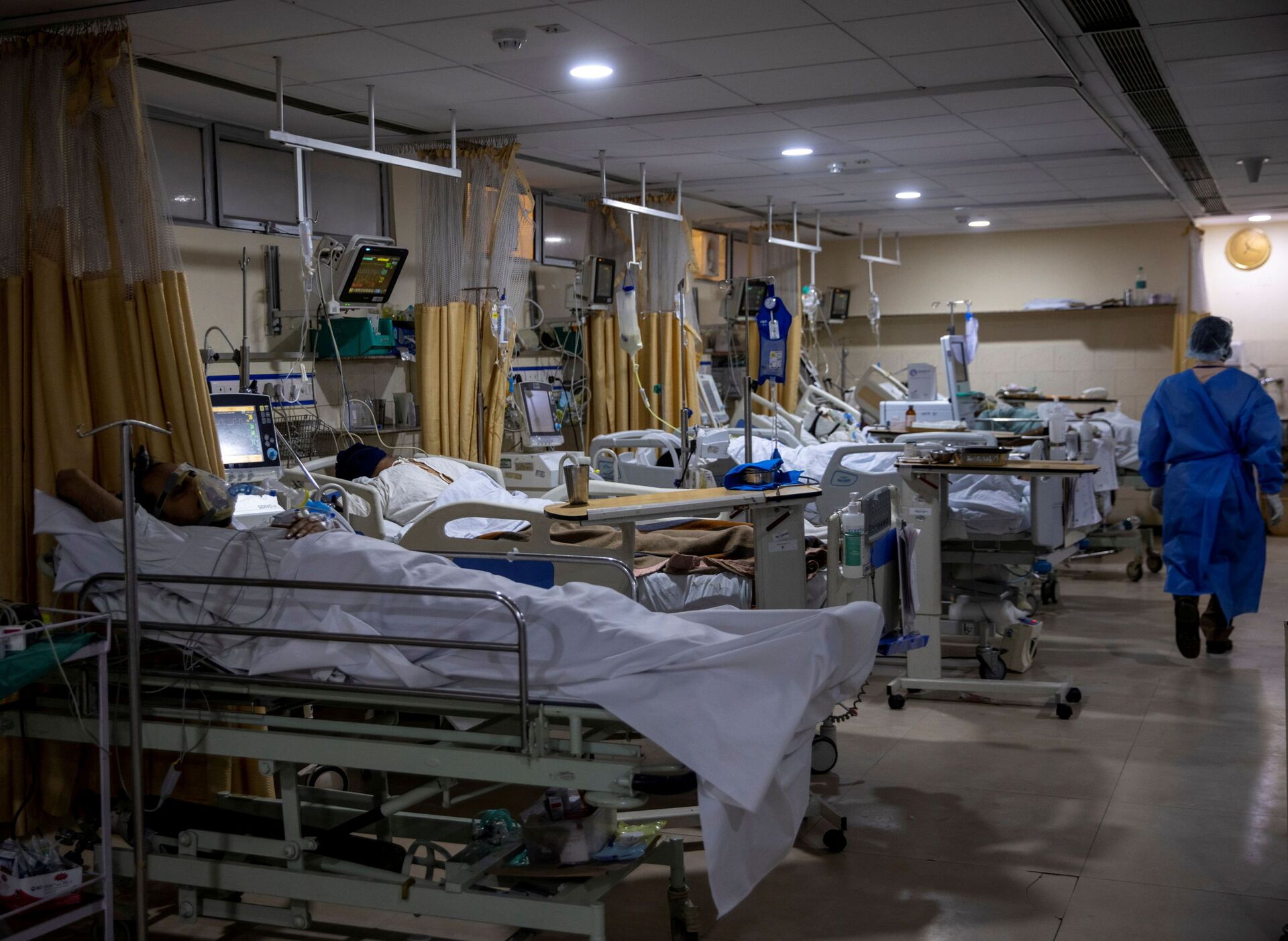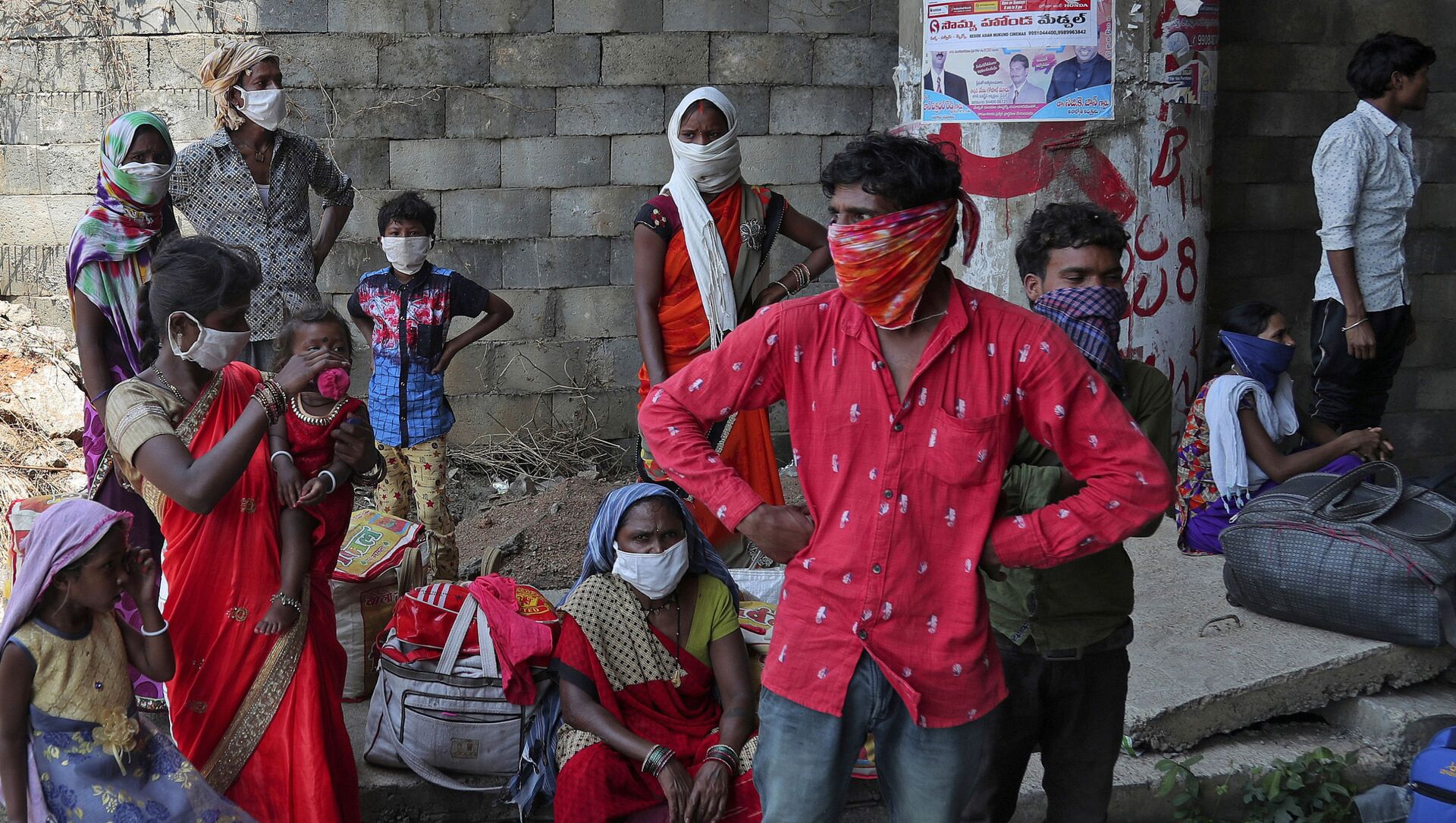The explosive surge in the number of COVID-19 infections in India has led scientists to study whether a variant of the novel coronavirus first detected in India is to blame.
What is the Indian Variant?
The variant, named B.1.617, has so far been reported in about 21 countries and is raising concern around the world. The World Health Organisation (WHO) said that the variant was first identified in India last December, despite the first case being reported in October 2020.
Indian virologist Dr Radha Kanta Ratho, who is also a professor at the Post-Graduate Institute of Medical Education and Research in Chandigarh, told Sputnik that the Indian variant "consists of two mutations on the spike protein of the virus that permits a virus to enter the body to infect it." He explained more research is needed because "data is sparse at the moment and more about this variant's behaviour will be documented soon."
B.1.617 was detected in about 220 of 361 COVID-19 samples collected between January and March in the Indian state of Maharashtra.

It has been categorised by the WHO as a "variant of interest", which means that it's believed to be more transmissible and may cause more severe symptoms.
The so-called British, South African, and Brazilian variants have been categorised by WHO as "variants of concern" because they pose a higher threat to the infected.
Global Concern
Since the end of February, 103 B.1.617 cases have been identified in the UK.
On Thursday, France registered its first Indian variant cases – three people who travelled from India were infected.
Health authorities have detected the variant in Germany, Belgium, Switzerland, US, Australia, and Singapore, among other countries.
What if the question is flipped around: what variants of the virus are found in people who have recently arrived from India? Unsurprisingly there is re-import of B.1.1.7 (though that was covered less breathlessly by the media), and as expected we do see an increase in B.1.617 pic.twitter.com/Xtd20GHrKI
— Jeffrey Barrett (@jcbarret) April 22, 2021
Indian Variant Behind the Second Lethal Covid-19 Wave?
Since 15 April, India has been reporting a huge spike in the number of coronavirus cases, with the highest daily record broken on Friday when 386,452 new infections were reported. The death toll also jumped to its highest since the start of the pandemic, with 3498 fatalities over the past 24 hours.
Scientists are still studying whether the Indian variant is more transmissible and if it is responsible for the fresh and more lethal wave of the pandemic sweeping through the country. "We still can't conclusively say that the Indian variant is responsible for the fresh wave. Other factors, such as festivals and rallies, could have added to the spread," Dr. Kanta Ratho said.
#B1617 has lost E484Q mutation in most of sequenced cases. Add'l only minor immune-esc. I increasingly wonder if it plays any major role in India, #B117 being responsible seems at least very possible to me.https://t.co/rT7j5ex90Lhttps://t.co/lZiKAPaFaVhttps://t.co/jY2fom3s6o pic.twitter.com/j7yugoJqMh
— Jan Hartmann (@pelagicbird) April 26, 2021
The Vaccine's Impact on the Virus
There are no studies that indicate the Indian variant cannot be neutralised by the available vaccines in the country.
India started its vaccine drive in January and so far more than 150 million doses have been administered, according to government data, and only 25.8 million have received a second dose.
India is using Bharat Biotech's Covaxin and the Astra Zeneca vaccine, known locally as Covishield, produced by the Serum Institute of India.
"As of now we believe that the vaccines being given for COVID-19 will be effective for the Indian variant as well," Dr. Kanta Ratho added.





